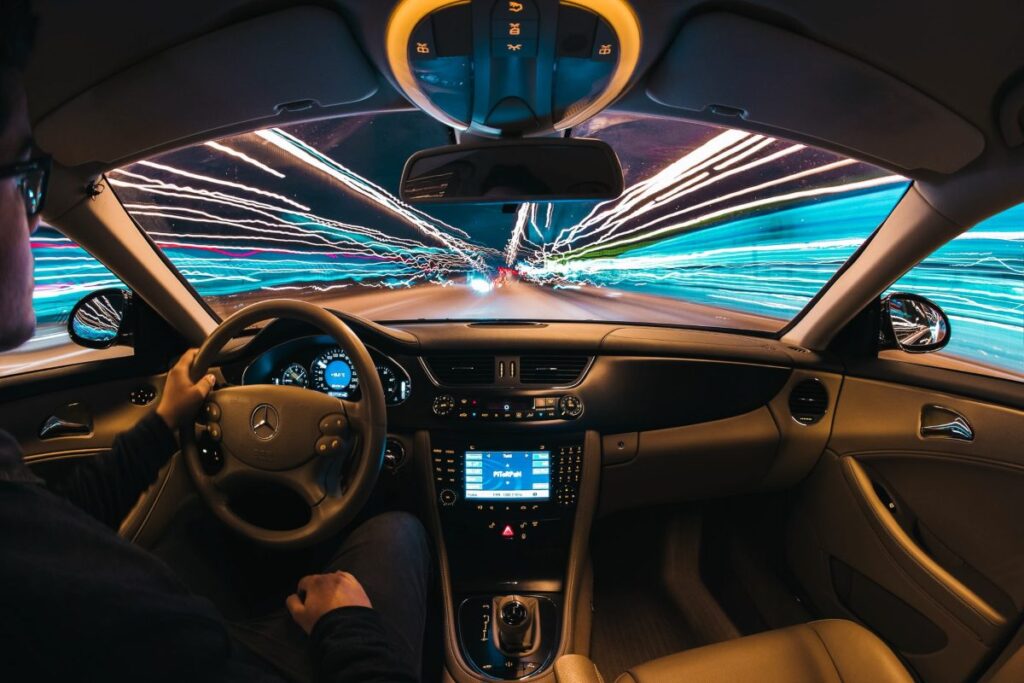In recent years, the automotive industry has witnessed a remarkable transformation with the advent of smart cars. These vehicles, equipped with cutting-edge technology and innovative features, are redefining what it means to drive. From enhanced safety systems to seamless connectivity, smart cars are not just a trend; they represent a significant shift in the driving experience. As we delve into the topic of how smart cars are changing the driving experience, we will explore the various ways these intelligent vehicles are making our journeys safer, more efficient, and enjoyable.
Throughout this article, you will learn about the key features that set smart cars apart from traditional vehicles. We will discuss the integration of advanced driver-assistance systems (ADAS), which help prevent accidents and improve overall road safety. Additionally, we will examine how smart cars utilize real-time data and connectivity to enhance navigation and provide drivers with valuable insights during their travels. By understanding these innovations, you will gain a deeper appreciation for the future of driving.
Moreover, we will highlight the environmental benefits of smart cars, including their role in reducing emissions and promoting sustainable driving practices. As you read on, you will discover how these vehicles are not only changing the way we drive but also contributing to a greener planet. Join us on this journey to uncover the exciting advancements in smart car technology and how they are shaping the future of transportation. Don’t miss out on the opportunity to stay informed about the driving experience of tomorrow!
Enhanced Safety Features
Smart cars are equipped with advanced safety technologies that significantly reduce the risk of accidents. Features such as automatic emergency braking, lane-keeping assist, and adaptive cruise control utilize sensors and cameras to monitor the vehicle’s surroundings. These systems can detect potential hazards and react faster than a human driver, providing an additional layer of protection.
Moreover, the integration of artificial intelligence allows smart cars to learn from driving patterns and improve their safety protocols over time. This not only enhances the driving experience but also instills greater confidence in drivers, knowing that their vehicle is actively working to keep them safe on the road.
Autonomous Driving Capabilities
The rise of autonomous driving technology is one of the most transformative aspects of smart cars. With the ability to navigate and operate without human intervention, these vehicles are changing the way we think about transportation. Companies like Tesla and Waymo are at the forefront of this innovation, developing systems that can handle complex driving scenarios.
As autonomous vehicles become more prevalent, they promise to reduce traffic congestion and improve fuel efficiency. By communicating with each other and optimizing routes, smart cars can create a more efficient transportation network, ultimately enhancing the overall driving experience for everyone.
Connectivity and Infotainment Systems
Smart cars are not just about safety and autonomy; they also offer advanced connectivity features that enhance the driving experience. With integrated infotainment systems, drivers can access navigation, music, and communication tools seamlessly. Voice recognition technology allows for hands-free operation, ensuring that drivers can stay focused on the road while enjoying their favorite media.
Additionally, the ability to connect to smartphones and other devices means that drivers can receive real-time updates on traffic conditions, weather, and even vehicle diagnostics. This level of connectivity transforms the car into a mobile hub, making every journey more enjoyable and efficient.
Environmental Impact and Efficiency
Smart cars are also contributing to a more sustainable future. Many of these vehicles are electric or hybrid, reducing greenhouse gas emissions and reliance on fossil fuels. The integration of smart technology allows for better energy management, optimizing battery usage and extending the range of electric vehicles.
Furthermore, smart cars can communicate with charging stations to find the most efficient routes and charging times, minimizing downtime. This not only benefits the environment but also enhances the overall driving experience by reducing the stress associated with long trips and charging logistics.
Personalized Driving Experience
One of the most exciting aspects of smart cars is their ability to offer a personalized driving experience. Through machine learning algorithms, these vehicles can adapt to individual driver preferences, adjusting settings such as seat position, climate control, and driving modes based on past behavior.
This level of customization ensures that each driver feels comfortable and in control, making every journey more enjoyable. As smart cars continue to evolve, we can expect even more sophisticated personalization features that cater to the unique needs of each driver.
Future Trends in Smart Car Technology
The future of smart cars is bright, with ongoing advancements in technology promising to further enhance the driving experience. Innovations such as vehicle-to-everything (V2X) communication will allow cars to interact with traffic signals, pedestrians, and other vehicles, creating a safer and more efficient driving environment.
Additionally, the development of 5G technology will enable faster data transmission, improving the responsiveness of smart car systems. As these technologies continue to mature, we can expect smart cars to become an integral part of our daily lives, fundamentally changing the way we drive and interact with our vehicles.
| Aspect | Description |
|---|---|
| Connectivity | Smart cars are equipped with internet connectivity, allowing for real-time updates, navigation, and access to various applications, enhancing the overall driving experience. |
| Autonomous Driving | Many smart cars feature advanced driver-assistance systems (ADAS) that enable semi-autonomous or fully autonomous driving, reducing the need for manual control and increasing safety. |
| Safety Features | Smart cars come with enhanced safety features such as collision detection, lane-keeping assistance, and adaptive cruise control, which help prevent accidents and protect passengers. |
| Fuel Efficiency | With smart technology, these vehicles can optimize fuel consumption through intelligent routing and driving patterns, contributing to environmental sustainability. |
| Personalization | Smart cars can learn driver preferences and habits, allowing for a more personalized driving experience, including seat adjustments, climate control, and entertainment options. |
| Remote Access | Drivers can control various functions of their smart cars remotely via mobile apps, such as locking/unlocking doors, starting the engine, or checking vehicle status. |
| Data Collection | Smart cars collect data on driving patterns and vehicle performance, which can be used for maintenance alerts and improving future vehicle designs. |



